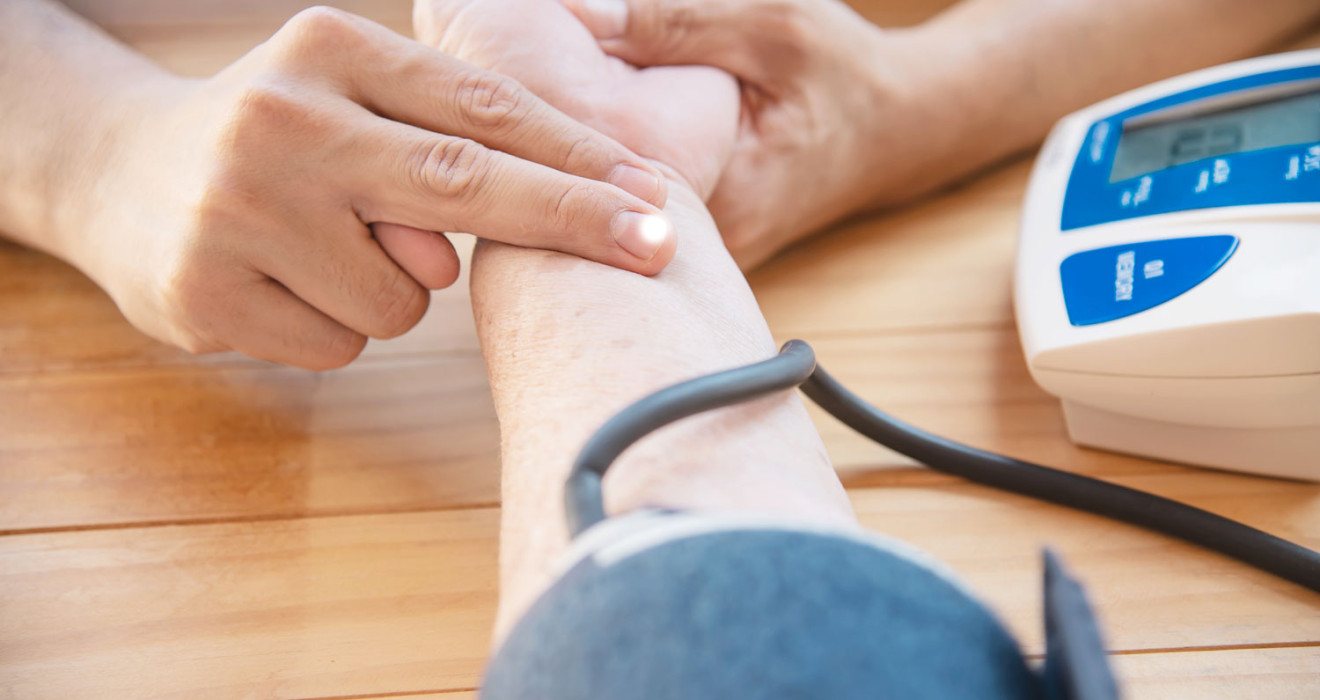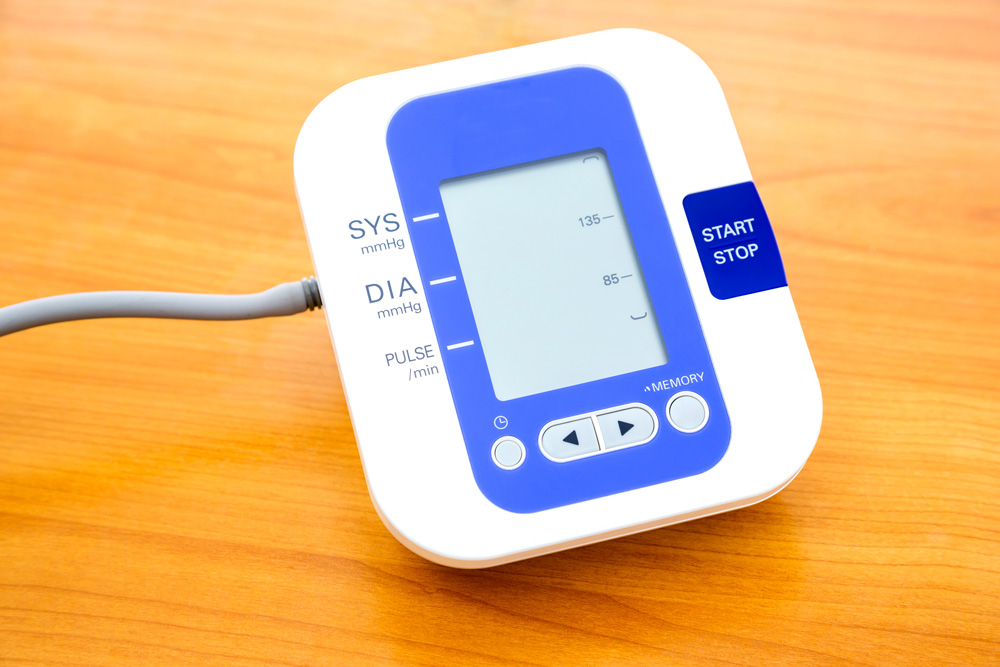
High Blood Pressure (Hypertension)
High blood pressure is also called hypertension. What is hypertension and what its causes are frequently asked by patients. Excessive salt consumption and a sedentary lifestyle can lead to hypertension. Since the increase in blood pressure in the short term does not cause any symptoms, it should be checked from time to time in the group over 40.
What is High Blood Pressure (Hypertension)?
Hypertension is a health condition that causes the blood to be exposed to high pressure in the vessels. Blood pressure refers to the pressure at which the heart pumps blood to body parts as it beats.
High blood pressure is defined as greater than 140/90 mmHg. This can cause damage to organs such as the heart, brain and kidneys over time.
How is High Blood Pressure (Hypertension) Diagnosed?
The diagnosis of hypertension is made by measuring blood pressure. Blood pressure measurement is done with a blood pressure meter. This device is a device in the form of a bracelet or bandage placed on an area of the body. The blood pressure measurement is usually repeated several times, and the average value is taken.
High blood pressure is diagnosed when the measured blood pressure is consistently 140/90 mmHg or higher.
What are the Causes of High Blood Pressure (Hypertension)?
The causes of hypertension are as follows:
- Stress
- Genetic predisposition
- Overweight or obesity
- Kidney diseases
- Smoking and alcohol use
- Low potassium, high sodium intake
- Other health problems (such as diabetes, thyroid)
What are the Symptoms?
High blood pressure symptoms are as follows:
- Headache
- Fatigue
- Nosebleeds
- Eye problems
- Nausea or vomiting
- Air hunger
What Are the Types of High Blood Pressure?
Types of hypertension are as follows:
- Systolic hypertension expresses the pressure created when the heart pumps blood while beating. This type of hypertension is usually defined as 140 mmHg or higher.
- Diastolic hypertension: It expresses the pressure formed in the time between heartbeats. This type of hypertension is usually defined as 90 mmHg or higher.
What are the Problems That Can Trigger High Blood Pressure?
Problems that can trigger hypertension are as follows:
- Diabetes
- Kidney diseases
- Hormones produced by the adrenal glands
- Overweight or obesity
- Thyroid diseases
- Sleep apnea
What are the Problems Caused by High Blood Pressure?
Hypertension can cause serious health problems over time. These problems are as follows:
- Heart diseases: Hypertension increases the risk of heart attack or stroke.
- Brain diseases: They can cause occlusion of brain vessels.
- Kidney diseases: They can impair the function of the kidneys and cause kidney failure.
- Eye diseases: They can cause eye diseases.
- Atherosclerosis: It causes plaque formation on the inner surface of the vessels.
- Low birth weight: It can cause low birth weight during pregnancy.
- Various other health problems: Hypertension can cause many other health problems. (like depression)
How to Treat?
The hypertension treatment plan varies according to many factors. However, lifestyle changes are usually recommended first:
- Exercising regularly
- Following a healthy diet
- Not smoking or quitting smoking
- Limiting alcohol consumption
- Losing weight if you are overweight or have obesity
If blood pressure is still high despite lifestyle changes, medication is recommended. The most commonly used drugs are a combination of ACE inhibitors, beta-blockers, calcium channel blockers, ARBs, aldosterone antagonists, and diuretics.
Other treatment options may be considered if the medication cannot control hypertension.
How to Lower High Blood Pressure?
You can reduce hypertension with personalized treatment. As mentioned above, you should make lifestyle changes first, and other treatment options should be applied if necessary.
Frequently Asked Questions
-
The measurement is usually done using a manual sphygmomanometer or an electronic instrument.
- First, the hand or arm to be measured should be placed in a horizontal place comfortably.
- Afterwards, the measurement should be made using a blood pressure monitor.
- It is necessary to record the rate and sound of the heartbeat during the measurement.
- The measured blood pressure values (systolic and diastolic) are displayed at the end of the measurement. The measurement is only an instantaneous value and may give different results in the same person at other times. Therefore, care must be taken when measuring. It is also recommended to repeat the measurements.
-
Blood pressure values usually increase with age. Values by age should be as follows:
- Adolescents and adults (18-59 years): The ideal blood pressure value for adolescents and adults is 120/80 mmHg or less.
- Elderly (60 years and older): The ideal value for the elderly is 130/80 mmHg or less.
-
To lower high blood pressure without medication, you can consider the following recommendations:
- Eating healthy
- Exercising regularly
- Not smoking and reducing alcohol intake
- Lose weight
- Reducing stress If you adopt a healthy lifestyle by paying attention to your lifestyle, it is possible to lower blood pressure without medication. However, in some cases, other treatment methods may be required. Your doctor will decide about this situation.
-
Blood pressure values usually increase with age. Values by age should be as follows:
- Adolescents and adults (18-59 years): The ideal blood pressure value for adolescents and adults is 120/80 mmHg or less.
- Elderly (60 years and older): The ideal value for the elderly is 130/80 mmHg or less.
-
There are several methods to lower blood pressure quickly. However, rapid lowering of blood pressure can often cause serious health problems. Therefore, you should do it under the supervision of a doctor.
- First, antihypertensive drugs can be used to lower blood pressure quickly. These drugs regulate blood pressure by rapidly lowering blood pressure.
- Another method used to lower blood pressure quickly is a medical intervention. Among these procedures, intravenous drugs are used. Remember that rapid blood pressure lowering should only be done in an emergency and under the supervision of a doctor. In addition, instead of using drugs to lower blood pressure, you should do a healthy diet, regular exercise, smoking should not be used, and alcohol intake should be reduced.
-
Frequent blood pressure measurements are not generally harmful. However, some rules must be followed during measurement. For example, it is recommended that you relax and remain calm for 30 minutes before taking a size. In addition, the best time to measure blood pressure is in the morning.


